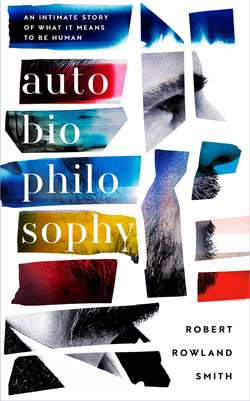Читать книгу AutoBioPhilosophy: An intimate story of what it means to be human - Robert Smith Rowland - Страница 36
The importance of doing nothing
ОглавлениеTrying to stand in for my father spoke to an urge on my part that was immature. Or premature, rather. Because I couldn’t bear to spectate on his life, I was trying to hasten his death. Doing so would turn me prematurely into a father in my own right. As a precocious essay at adulthood, that fitted with acts of far lesser import, such as the calling of my parents by their first names, which was supposed to prove how grown-up I was. It fitted with starting to shave before I really needed to, as I had done at fifteen. It fitted with lying about my age to my first girlfriend, Emma. I told her I was doing my A levels like an eighteen-year-old, when at sixteen I was only doing my Os. In all cases, I was jumping the gun. Maybe it was a response to having an older sister, showing that I wasn’t lagging behind. Whatever the cause, the natural – and unhurried – process of maturation caused me stress. I was forever trying to catalyse it.
Knowing when to act is at least as important as knowing what to do. Ripeness is all. And sometimes the best course is to do nothing. Broadly speaking, that is the Taoist approach. It’s not about inertia, however. The advantage of minimising our own activity is that it maximises the effect of powers larger than we are. We get out of our own way. That allows us to be carried instead by a knowing tide. We recognise that there are wider forces ready to disport themselves, forces such as that species imperative. If being human means standing in the flow of life, then perhaps we should allow that flow to happen, and accept that life is stronger than any of us. Let us stop trying too hard.
Because we in the West live in a culture that believes in making rather than letting things happen, that approach might be unpalatable.fn5 We favour action, looking down on inaction with disdain. Yet it was exactly at the point where I was no longer calling the shots that I was rewarded with a daughter.
When I decided to drop out of Oxford, I believed I was taking my life into my own hands. I was exhibiting, even flaunting, my agency. As I’ve said, there was a powerful enough default option, in the form of carrying on with my degree. Interrupting that momentum took effort. But as the thunderbolt of Simone’s pregnancy proves, I could direct events only so much. My interruption was interrupted. The result, however, was a daughter whom I love. That raises the question of what other powers were at large, powers operating a level deeper even than the species. Might there be a fifth layer to our triangle, a wider base?
That I was prematurely made a father might have been chance. Except that ‘chance’ is such a non-answer. Given that Anna’s appearance in the world was so positive, was there a benign will that made it happen? In pop terms, was this ‘the universe’ doing me a favour? The practical benefit of Simone’s pregnancy was that it made me realise I should go back to Oxford and finish my degree. It forced me to sober up. If I was to be a father, I should give us as a family the best foundation. An Oxford degree, which luckily enough I was two-thirds of the way to completing, was exactly that. At the very least, I would be pulled out of the hole I had dug. Whether it was chance or the machinations of a spirit, some goodness was abroad, some benefit being dispensed like overnight dew.
Again, it’s hard to know. Powers such as chance or ‘the universe’ are inscrutable. That is partly what it means to be human. We never know for sure the balance of our own agency versus all the other forces operating upon us. The lesson that I draw from Simone falling pregnant is that sometimes it is better to take one’s own hands off the steering wheel. Trust that you’ll be delivered safely to the right destination, even though that destination might not be the one that you punched into the SatNav.
